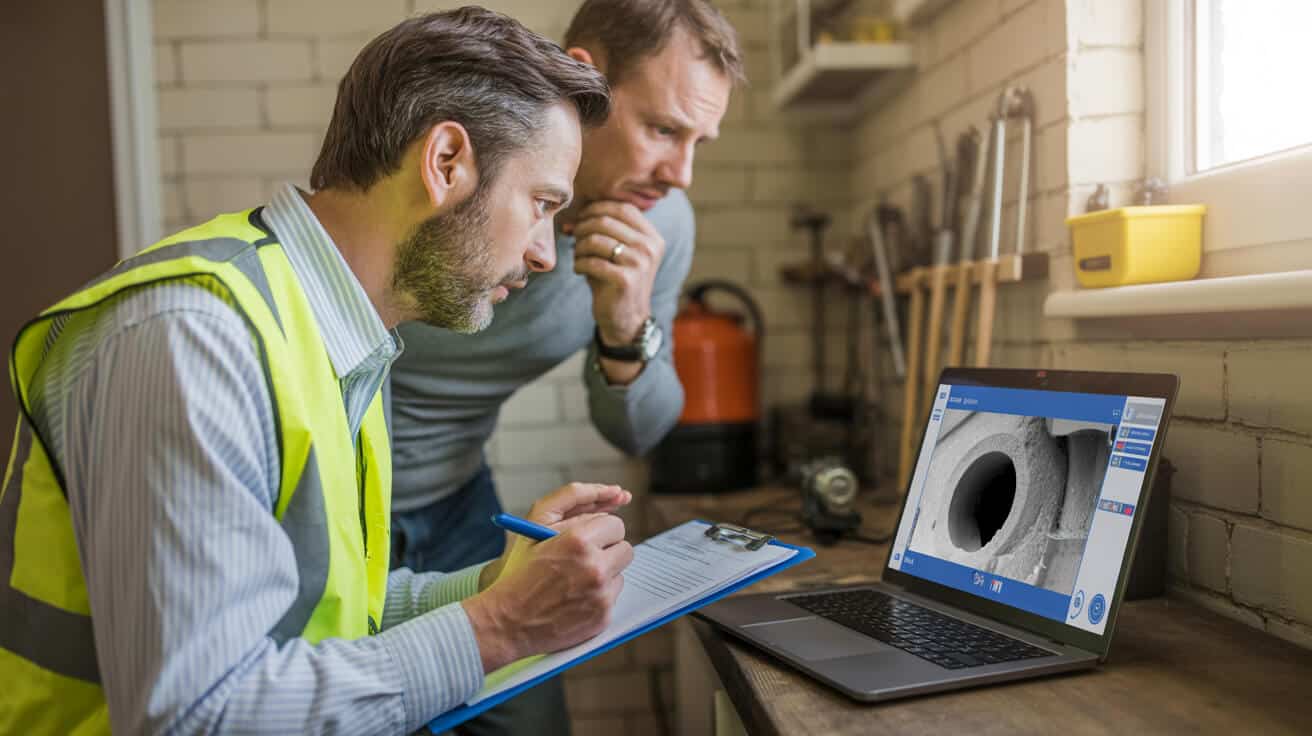 How Does Part L Affect Boiler Installations in Rentals
How Does Part L Affect Boiler Installations in Rentals

What really changes for rental properties under Part L boiler regulations?
Landlords, agents, and property managers across the UK are in a new reality: Part L isn’t just a technical regulation—it’s the gatekeeper for your business, your legal letting permissions, and your reputation with agents and tenants. Since the 2022 updates, boiler installations in rental properties carry non-negotiable requirements. That’s not just about paperwork: it directly impacts your EPC grade, insurance, and your ability to bring a property to market.
Compliance is no longer optional—one missed cert or skipped control could freeze your rental income faster than a January cold snap.
The new minimum: efficiency, controls, paper trail
Landlords used to playing it safe with “like-for-like” swaps or trusting a verbal sign-off from the plumber now face a different landscape. The latest Part L standards demand high-efficiency Condensing Boilers (ErP 92%+) and programmable, room-specific controls as your legal baseline. Every upgrade, every fix, every new certificate must be visible, documented, and ready for agent or council audit—because without the paper, your right to let the property can stall instantly.
Old shortcuts, like swapping for what’s in stock or skipping TRVs, lead to outright refusals from HMO officers, insurance headaches, and letting agents blacklisting your address. Commit to getting each stage right—condensing model, TRVs everywhere, advanced controls when required, a clean Benchmark log, and one digital file with it all.
Why this shift matters for landlords
The property rental sector is no longer a loophole zone. It’s now the most visible battleground for national energy reduction targets, tenant welfare, and market reputation. Councils and letting agents can and do block renewals, renew EPCs, or list your property on the open market unless you prove your Part L compliance at every stage.
What matters:
- Your boiler must hit 92% ErP or better—period.
- Programmable stats and TRVs are expected throughout.
- Documentation—benchmark, Boiler Plus, control checklists—must be available at a click or tap, not buried in a folder or “with the plumber.”
Being ready isn’t just technical—it’s a trust signal to tenants and agents. Properties that flinch here instantly lose trust and marketability.
How do Part L’s 2022 changes really impact landlords installing new boilers?

Part L 2022 turned the boiler instal process on its head for landlords: what was once a best-practice “tick box” is now hard law with teeth for rental properties. Instead of calling for a basic swap, you now face a sequence of checks, paperwork, and enforcement that can cost weeks of income and open you to legal risk if you miss a step.
You don’t get paid for your intentions; you get paid for the proof in your paperwork.
The real changes you’ll notice
- No non-condensing swaps except in emergencies: The “like for like” instal is dead. Any new or replacement boiler must be a condensing model achieving ErP 92%+. The only off-ramp is robust, engineer-signed proof of technical impossibility, with supporting photos. Expect everything to be scrutinised.
- Advanced controls go mainstream: Programmable stats are non-negotiable. For bigger refurbishments or radiator upgrades (≥1/3 of total radiators), you must also include advanced controls—think of app-based or scheduling thermostats, load/ weather compensation, or multi-zone features.
- Auditable paper trail, every time: Agents and councils expect the full stack—Gas Safe or OFTEC installer credentials, a fully completed Benchmark logbook, a signed Boiler Plus checklist, and clear evidence of control compliance. These aren’t “maybe next time” documents: they are required for every single let, renewal, and insurance check.
- Refurb triggers new compliance: Altering the property itself (thinking of an extension, kitchen refit, or conversion) triggers a whole-building compliance check. The boiler, heating controls, and air tightness all become part of the audit.
These aren’t just legal lines—they are the new normal for keeping your rental asset marketable, certified, and insurable.
Digital-first compliance: what agents and councils now expect
Paper, lost in the glove box or left on the kitchen counter, is not enough. Letting agents and councils expect instantly shareable PDFs or digital portfolios. As soon as you request a listing or renewal, they will ask for a completed set—delays can de-list you, block tenancies, or hold up HMO licences.
If you wait until “the paperwork catches up,” you lose time and money correcting preventable mistakes. The best-in-class landlords treat this as part of their annual business workflow.
What happens if a landlord skips or fails Part L boiler compliance?

In 2024, missing a step in your boiler installation doesn’t just annoy a future tenant—it blocks your cash flow and exposes you to rapid-fire enforcement. For landlords, neglecting Part L is a high-stakes gamble that instantly compounds.
Shortcuts in compliance are a tax on your time, reputation, and wallet.
Real-world consequences for non-compliance
- Immediate rent freeze: Letting agents routinely refuse renewal or new tenant listings until compliance is proven—meaning every missing certificate is a week’s income gone forever.
- Regulatory intervention: Local authorities can issue improvement or prohibition orders, enforce HMO licencing restrictions, or trigger a rental ban until documents are produced and audits passed.
- Voided insurance: Claims on heating, water damage, or property risk often link payouts to up-to-date compliance records. Lack of documentation is a fast route to lost claims.
- Document catch-up costs: If you cut corners and get caught, agents or councils will force costly retrofits, re-commissioning fees, and late notification penalties. Double-paying for upgrades is now common.
- Tenant-driven escalation: Modern tenants know rights. They can and will escalate to council if heating systems aren’t compliant, adding scrutiny, cost, and audit stress.
“Just Gas Safe” isn’t enough
Landlords frequently assume passing a Gas Safe check is a golden ticket. Wrong. Agents and councils now check for:
- Benchmark logbook (with all commissioning steps ticked)
- Boiler Plus/Part L controls certification
- Installer credentials
- Evidence of notification to building control or OFTEC
If you can’t produce every document, your status as a compliant landlord evaporates—no matter how safely you think you play the game.
The best landlords anchor their letting business in over-delivering on compliance, making sure every renewal and tenant onboarding flows without a hitch.
What atomic steps guarantee Part L compliance for landlords?

Making compliance routine removes the fear factor and sets up your business for frictionless renewals and zero-audit stress. Here’s how the highest-performing landlords de-risk every boiler job:
Compliance done right means your phone doesn’t ring with problems—it rings with renewals and referrals.
Landlord Part L Compliance Blueprint (2024)
- Pick the right installer—every time
- Only accept quotes from Gas Safe or OFTEC-registered engineers with rental-sector experience.
- Ask for their certificate *before a wrench is turned*.
- Insist on high-efficiency condensing boilers
- Ensure the quote and receipt clearly state ErP 92%+.
- Refuse non-condensing swaps unless you see a full exemption file (with photos).
- Mandate control upgrades and TRVs
- Don’t accept “just a stat”: require a programmable room thermostat and TRVs everywhere except the stat zone.
- For 33%+ new radiators or big refurbishments, demand advanced controls (load/weather compensation, smart/app controls, zoning).
- Demand full documentation up front
- Benchmark logbook (fully filled)
- Boiler Plus/Part L checklist
- Commissioning certification (signed by installer)
- Building control notification (Gas Safe or OFTEC)
- All provided in digital format before payment is finalised.
- Build a digital compliance file
- Scan and store all docs; share with your letting agent on listing or renewal.
- Keep copies for insurance, EPC, and HMO audit cycles.
- Integrate annual compliance cycles
- Make compliance part of your annual CP12 (gas safety) and EPC review. Attach Boiler Plus to each cycle and you’ll never “miss” an audit again.
Landlord compliance at a glance
| Checklist Step | What to Get | Who Delivers |
|---|---|---|
| Installer ID | Gas Safe/OFTEC cert on file | Landlord |
| Boiler spec | ErP 92%+ on instal docs | Installer |
| Controls | Programmable stat, TRVs, advanced | Installer |
| Logbook | Benchmark, Boiler Plus, fully filled | Installer |
| Building Control | Gas Safe/OFTEC notification | Installer |
| Digital file | All files in one folder | Landlord |
| Annual review | CP12, EPC, Boiler Plus attached | Landlord |
Miss any of this? Expect delays, agent refusals, insurance challenges and audit flags. Build the habits now and your next letting (and feedback) will shine.
Can landlords still swap a non-condensing boiler for another non-condensing unit in 2024?

This is the question that blows up more letting timelines than any other. “Just swap for like, nobody will notice”—that era’s over. Part L 2022 allows non-condensing replacements only as the narrowest of exceptions, and councils and agents are on the lookout for misuse.
Trying to dodge upgrades leaves your rental frozen in place and your paperwork under a microscope.
Why you can’t “just match what’s there” anymore
- Legal status: The law requires condensing models for all new installations and swaps, regardless of what’s already on site. Only exception: technical impossibility (often due to property layout or venting, never price).
- Proof requirement: To win exemption, you’ll need a detailed, engineer-authored case—site photos, attempts at all mitigation, and a signed statement explaining exactly *why* a modern condensing unit can’t be fitted.
- Audit reality: Councils, agents and lenders will flag or block listings and renewals if these exemptions aren’t ironclad. “Cost” doesn’t count, and they’re quick to escalate.
The old shortcuts are now high-risk
Luck runs out when an agent, tenant, or inspector asks for the file. If you can’t produce it, you’re open to improvement orders, fines, marketing delays, or outright derecognition for insurance purposes.
If you want to future-proof your property and reduce audit pain? Treat every upgrade as a chance to level up efficiency and keep your letting file bulletproof.
When do you legally need smart controls or “advanced” thermostats for rental boilers?

The smart control question is front-of-mind for every landlord and agent: does Part L mean you must instal smart (app-based) controls, or is it only required in bigger system changes? The answer? It depends on the scope of your upgrade.
smart controls future-proof your rental, but the law plays catch-up to technology.
Minimum versus advanced requirements
- Core instals: Every new or replacement boiler needs at least a programmable room stat and TRVs fitted on radiators outside the stat’s sensing range.
- Big upgrades: If you replace or add a third or more of the home’s radiators, or you’re moving to a multi-zone or smart-integrated system, *then* you must include at least one advanced control, which might be:
- App-based thermostat (Hive/Nest/Tado/etc.)
- Load or weather compensation
- Multi-zone scheduling logic
“Basic swap” jobs only require the programmable stat/TRVs. Major refurbishments, property-wide upgrades, or multi-property portfolios moving to all-in-one systems—these trigger the smart control expectation.
Why lead rather than trail
Even when not yet absolutely mandated, smart controls are fast becoming best practice—driven by agent, council, and tenant expectations, as well as EPC/MEES tightening. Adding them ahead of regulation gives you:
- Better rentability and tenant satisfaction
- Reduced complaints and maintenance calls
- Streamlined audits and agent reviews
- Shock-proofing against future rule changes
Think of smart controls as your “tenancy insurance”—a step ahead of the market, not a grudging response to it.
How does Part L connect to EPCs and letting cycles for landlords?

One reason so many landlords trip up on Part L: it’s not just a box to tick; it’s part of a web of letting agent, council, and EPC requirements that can make or stall your business.
Nail your compliance pack and you spend less time fighting paperwork, more time filling rooms.
The compliance web: what really matters
- EPC dependency: Part L upgrades (condensing boiler, smart control, up-to-date logbook) directly improve your property’s EPC rating—a legal must for all lets (“E” now, “C” in sight). This affects your marketability and shields your income.
- Agent & council scrutiny: Agents won’t list you without digital evidence—Benchmark log, commission paperwork, control checklist. Councils can request spot audits at any point, including mid-tenancy (especially in HMO settings).
- Renewal readiness: The strongest landlords create a digital compliance file for every property, updated on every boiler, EPC, CP12, or letting milestone. This “compliance pack” is the difference between rental friction and smooth letting cycles.
If you treat compliance as an afterthought, you lose time, trust, and rental opportunities. Bake it into your renewal workflow and your property moves to the head of the queue, not the end.
Why proactive boiler upgrades are insurance for your business

Most landlords only think about their heating system when it breaks, usually at the worst moment: winter, right before a letting, or the day a certificate expires.
Committing to a proactive approach—fixing, upgrading, or auditing before anything goes wrong—is the habit that keeps your rental income smooth and your tenants happy.
Don’t let a frozen system or failed audit bottle-neck your schedule—upgrade before you’re forced to.
Proactivity pays in every direction
- Better pricing and scheduling: Out-of-season upgrades mean lower costs, spare parts on hand, and no last-minute price gouging by busy engineers.
- Regulation alignment: Early upgrades mean your compliance, EPC, and certification dates line up—making audits predictable and reducing tenant disruption.
- Tenant loyalty: A warm home and steady hot water reduce callouts, complaints, and churn—longer tenancies and less drama.
- Insurance protection: Claims depend on paperwork. Proactive instals build your file, keeping you covered no matter how tough the audit.
Proactive playbook for landlords
- Inspect heating systems every spring, not just when something fails.
- Time upgrades alongside EPC and CP12 cycles to streamline documents and workflows.
- Keep your compliance file up to date and share it before being chased.
- Treat every boiler job as a long-term risk hedge, not a one-off expense.
Landlords who upgrade before failure are always two steps ahead of the next regulation, complaint, or market dip.
Take the fast lane: Work with Plumbers 4U for market-ready rentals
Your rental business deserves more than a “passable” instal—it deserves a partner who values compliance, reputation, and frictionless letting as much as you do. Plumbers 4U brings hardwired expertise in Part L, WRAS, Gas Safe, and OFTEC standards, helping landlords and property managers stay confident in the face of changing regulations.
Let us drive your compliance, documentation, and efficiency to the standard that agents, councils, and tenants expect—so your portfolio stays profitable, insurable, and audit-ready all year round.
Book your compliance audit, boiler upgrade, or efficiency check with Plumbers 4U now—and keep every tenancy on schedule, every document at hand, and every letting agent happy to list your property.
Frequently Asked Questions
What new digital requirements define Part L boiler compliance for landlords in 2024?
A compliant boiler upgrade now means delivering verified digital documentation and system-level efficiency at every stage—not just a swapped appliance. Landlords need to evidence not only an ErP-rated condensing boiler (≥92%) but also the presence of programmable controls, TRVs on every radiator except the one with the main thermostat, and, crucially, a transparent, digital audit trail for every decision and installation step. Modern agents, insurers, and local authorities want immediate access to Gas Safe or OFTEC certificates, matching logbook entries, and fully completed Boiler Plus checklists—all digitised and ready for cloud storage or instant email. Relying on a single paper logbook or verbal assurance puts your market access, insurance, and compliance status on riskier ground than ever.
Today, one missing PDF triggers more rental voids than a cold radiator ever will.
How should a landlord organise digital compliance records for audits and renewals?
- Boiler documentation: Condensing (ErP ≥92%), photos of instal plate, proof of registration.
- Controls evidence: PDF or digital photo of installed programmable timers and TRVs in situ.
- Commissioning proofs: Digitised, signed Benchmark logbooks and Boiler Plus checklists.
- Installer credentials: Digital copy of Gas Safe or OFTEC certificate, dated for the specific project.
- Centralised archive: All files stored in a unified cloud folder, synced with tenancy cycles and agent records.
Plumbers 4U systematically compiles, digitises, and manages every compliance record, making it easy to share proofs and protect earnings—even under surprise audits.
Which compliance mistakes most often block landlords from letting properties after a boiler upgrade?
Oversights in digital paperwork—not technical installation faults—top the list of compliance failures. The main culprits are storing certificates or logbooks as physical-only documents, omitting evidence of required controls during upgrades, skipping digital logs of installer credentials, or waiting for the agent to chase missing info rather than proactively storing everything in the cloud. Each lapse can freeze listings, delay renewals, or even halt rental income while you trawl through backlogs or engineer handovers. Agents and local authorities now treat incomplete digital records as hard stops—pausing entire portfolios while one file is missing.
No agent or council will wait for paperwork to appear—the first missing file often locks out your entire rental pipeline.
Where should landlords double-check their compliance process?
- TRVs and controls upgrades: Confirm digital evidence is produced for all control upgrades; partial radiator swaps still trigger requirements under Part L.
- Proof of commissioning: Only a fully completed, digitised Benchmark logbook and Boiler Plus checklist pass audits—no skipped checks or “later” promises.
- Installer record management: Store your engineer’s credentials; don’t rely on their office or CRM to produce audits on demand.
- Notifications: Digital copies of Building Control notifications or EPC updates must be shareable at any request.
- Sync renewal cycles: Integrate compliance checks with tenancy and CP12/EPC dates.
Landlords who partner early with Plumbers 4U avoid last-minute scrambles, ensuring every file, scan, and checklist is ready and retrievable when the letting window opens.
How does the 2022 Part L update transform digital compliance workflow for rental portfolios?
The 2022 update leaves no room for informal swaps, “instal and forget” logbooks, or handoffs without digital proof. Now, every boiler upgrade is a digitally auditable event: letting agents, insurance underwriters, EPC assessors, and local authorities all expect a cloud-traceable evidence trail. Properties missing required files face automatic delisting, renewal refusal, or, in worst-case, entire portfolios flagged until every property is brought up to code. Even partial system upgrades (like zoning or more than a third of radiators) immediately escalate documentation expectations: advanced controls must be specified, installed, and evidenced with digital photos and commissioning details.
The landlords with the shortest voids are those whose digital folders leave nothing to chance.
What must landlords formalise in their upgrade process?
- Like-for-like disclaimers: Only valid with photo and written evidence; cost or ease is never an accepted reason.
- Digital controls evidence: No instal is finished until all zone/compensation upgrades are documented online.
- Real-time sharing: Agents now often require files before listing approval; delays cause rental loss.
- Portfolio-wide audits: One compliance failure can ripple to trigger checks elsewhere—preparing every property is now essential.
Plumbers 4U’s full compliance workflow provides a bulletproof digital archive, merging new instals with existing property records and ensuring audit readiness portfolio-wide.
What are the direct financial and operational risks of non-compliance with Part L updating?
Ignoring digital compliance places your rental income, insurance coverage, and agency status at risk—from a single missed PDF to an overlooked controls upgrade. Agents routinely freeze marketing or handover of tenancies while waiting for proof-of-compliance; local authorities can issue improvement or prohibition orders, blocking lets until evidence is provided. Insurance claims for heating failures may be denied outright, compounding rental losses. What seems like a minor missing logbook can result in weeks or months of downtime, with regulatory fines or enforced remedial works as added pressure.
- Letting agents withhold listings:
- Local authorities enforce property freezes:
- Insurers dispute payouts for heating faults:
- Audit failures spread to all managed property:
In rental management, every missing record amplifies downtime and costs—digital-first means market-first.
Partnering with Plumbers 4U instantly shrinks these risks: each instal, upgrade, and compliance event is managed for maximum digital traceability and minimum delay.
How can landlords streamline audit readiness for Part L regulations and avoid letting delays?
Audit resilience is no longer a set-and-forget admin task—it’s a workflow advantage landlords can build into every property. Proactively choosing certified installers, confirming every upgrade (hardware and controls) in advance, and insisting on immediate, cloud-stored digital files are the pillars of repeatable, frictionless compliance. Build a centralised digital hub for certificates, checklists, and annual renewal logs, synced to tenancy and CP12/EPC calendars.
Essential audit-ready upgrade checklist for landlords
- Hire Gas Safe/OFTEC-certified engineers—store digital copy of their credentials.
- Double-check all boiler and controls upgrades, log and upload instal/commissioning photos.
- Refuse acceptance on “paper only” documentation.
- Use a cloud-based archive for compliance and agent sharing.
- Schedule annual file reviews alongside property renewals.
Landlords whose documentation is a click away enjoy fewer rental gaps and higher agent trust.
Working with Plumbers 4U means this workflow is handled for you—each compliance step is actioned, digitised, and securely stored to speed up every letting and renewal.
What long-term benefits do landlords gain from high-standard digital compliance under Part L?
Treating digital compliance as an asset transforms rental portfolios into future-ready, market-leading properties. Landlords swiftly providing cloud-accessible files, full logbooks, and clear control proofs see faster listings, longer tenant retention, stronger insurance protection, and growing reputation among agents. With policy and energy standards evolving toward even tighter requirements, those ahead on digital records are first to qualify for government incentives, EPC upgrades, and lower insurance rates.
Frictionless compliance becomes a signal of professionalism, attracting quality tenants and positioning properties as the benchmark for responsible letting. New regulations or agent audits become routine, not threats—the operational confidence to let, renew, or expand without compliance anxieties.
- Shorter letting gaps: Agents turn to you first
- Tenants trust quick fixes, transparent records, and modern controls
- Insurance claims are simpler, protection stronger
- grant eligibility and EPC upgrades unlocked with minimal new work
- Sustainable business growth protected against regulatory waves
Treat Part L not as red tape, but as your competitive edge—Plumbers 4U provides the files, logic, and follow-up landlords need to rule the rental sector.
Let digital compliance clear a path to faster lets, fewer disputes, and a calendar running on your priorities—not government deadlines.
